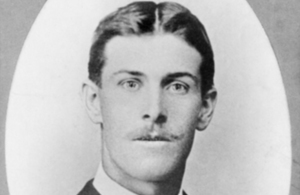WW1 Australian VC recipient Alfred John Shout
The story of Australian First World War Victoria Cross recipient Alfred John Shout.

Alfred John Shout [Credit: Australian War Memorial P02058.001]
66 men from Australia received the Victoria Cross, Britain’s highest award for gallantry, during the First World War. As part of the Centenary Commemorations the people of the United Kingdom marked their gratitude to those courageous men by presenting a bronze memorial plaque to their home country engraved with their names. The plaque is now displayed at the Australian War Memorial. This archive tells their stories.
Name: Alfred John Shout
DOB: 7 August 1881
Place of Birth: Wellington, New Zealand
Date of Action: 9 August 1915
Place of Action: Lone Pine, Gallipoli
Rank: Captain
Regiment: 1st Battalion, Australian Imperial Force
Alfred John Shout was born on 7 August 1881 in Wellington, New Zealand, but moved to Australia with his wife and daughter in 1905 where he worked as a carpenter in Sydney. He previously served in the Boer war and was also a part-time officer in the local militia (now the Australian Army Reserve). He joined the Australian Imperial Force as soon as war broke out in 1914.
As part of the 1st Battalion, he took part in the Gallipoli landing on 25 April 1915, and for which he was awarded the Military Cross for his outstanding leadership. He was also mentioned in despatches for his actions over the following weeks, and was one of the most decorated soldiers of the Gallipoli campaign.
Captain Shout was awarded his Victoria Cross posthumously, for most conspicuous bravery when the Australians attacked Lone Pine; as his citation details:
On the morning of 9 August, 1915, with a small party, Captain Shout charged down trenches strongly occupied by the enemy, and personally threw four bombs among them, killing eight and routing the remainder. In the afternoon of the same day, from the position gained in the morning, he captured a further length of trench under similar conditions and continued personally to bomb the enemy at close range, under very heavy fire, until he was severely wounded, losing his right hand and left eye.
Captain Shout was evacuated from the fighting, but died from his injuries on a hospital ship two days later. He was buried at sea.